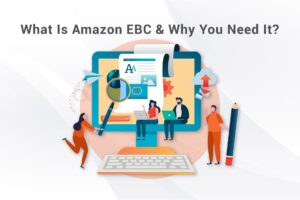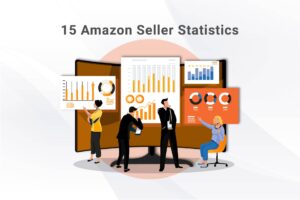Amazon Private Label is an appealing option in 2022 when third-party Amazon FBA vendors are on the rise.
Whether you’re new to the Private Label realm or an experienced seller, it’s essential to be aware of inevitable mistakes that third-party vendors make that lose them money.
Avoiding frequent private label mistakes is the key to success. Launching a private label on Amazon provides sellers with access to a vast marketplace and opportunities that arise from the brand’s value.
Unfortunately, many Amazon private label merchants make the same mistakes repeatedly and question why their prospective company fails. As a result, we’ve compiled a list of frequent blunders to avoid while selling your private label.
1- Insufficient Product Research
Selling something without sufficient research is a typical Amazon private label blunder, especially among newcomers. This usually occurs when the vendor is unskilled, or the company is a part-time business.
There is nothing inappropriate with sampling the waters, but without prior investigation, you will likely lose your money and time.
Instead, of determining if a private label has a potential audience ahead of time, there is a practical method to predict the success of your new enterprise. A hot product may have potential, but upon closer analysis, the market may already be saturated.
It would not be easy to compete with competitors who have already established their brand/product’s position.
2- Violation of Amazon’s TOS
A most common error made by newcomers and even experienced Amazon Private Label sellers is to violate Amazon’s Terms of Service (TOS )and FBA restrictions. Amazon does not shy away from suspending vendors who violate its terms of service.
When a seller profile is blocked, the seller cannot access any merchandise available in Amazon’s fulfillment centers. Amazon could even dispose of thousands of dollars of products from terminated accounts.
As a result, every Amazon seller’s first step is to ensure that their Amazon brand registry is completed. They fulfill safety and compliance standards, do not infringe on any copyrights or brands, and don’t breach any product category limits or obstacles.
It is possible to reactivate your account, although Amazon is not required to respond to seller inquiries.
3- False Decision-Makers Break Promises
Make sure you speak with a legitimate decision-maker when marketing your private-label firm. The investment committee has real decision-makers; anybody else is a fraud whose promises may result in a failed transaction.
These individuals may present an offer as if they were decision-makers, but the final choice is made by their supervisor, who may say no when they see it.
They may be reimbursed based on the number of LOIs distributed, irrespective of whether they close.
You can’t rely on a bogus decision-maker unless you speak with someone who makes investing choices. Make sure you’ve talked to an actual decision-maker. Only an expert like SPECTEK can handle Amazon account management.
4- Inadequate Product Research
A good business is built on thorough product research. It’s tempting to succumb to the “get wealthy quick” scams on YouTube, Facebook and other medias.
Many self-proclaimed Amazon experts will advise you on which things to sell. No private label merchant will advise you on which items to promote on Amazon with your best interests in mind. You become their competitor the minute you begin to sell on Amazon.
The key to private label product research and product launch is to dodge overcrowded markets. Focus on items with few reviews but strong demand, no matter how appealing a product concept appears. There are different resources available in the market to help you in your study.
5- Poor Inventory Management
Inventory management is essential to any Amazon FBA business, especially if you sell Private Labels. When your product listing becomes ‘unavailable,’ you will start losing all of your consumers to your competitors.
In private label, for every “hot” product you sell, another Amazon Private Label business sells an identical one. You cannot rely on an existing “brand” or client loyalty as a private label seller.
Customers on Amazon prioritize pricing, availability, and reviews. Most Amazon shoppers will move to a rival if they read “in stock on…” or “currently unavailable.”
With a consumer base accustomed to 1-day prime shipping, poor inventory management may kill a good product. When replacing your ASINs, you must account for your supplier’s and Amazon’s lead times.
6- Competitive Prices
Setting the correct pricing for your branded goods might be difficult. It may not be easy to distinguish your brand from other generic items, especially if it is new.
When selling phone covers using your private label at $14 and competitors sell identical items for $9. Even though your items have a brand, the consumer will select the cheaper choice.
It isn’t easy to justify a higher price if your private label isn’t well-known. Your Amazon PPC will drop a lot in this case.
Your price must be competitive in this instance. This, however, may reduce your profit margin. As a seller, you may use the power of prices on your private label items. Intelligent re-pricing technologies optimize the cost and improve your earnings automatically.
7- Finishing the sale poorly
A sale isn’t done until it’s done, and sellers must stay focused on all details until the customer has the item in their possession. When a seller receives an sale, their attention shifts to marketing for the next sale, and their brand suffers as a result. The product may be great but if you don’t finish the sale correctly you may still get the feedback that you don’t desire.
Little things start to break down:
- Transactions are poorly optimized
- Shipments are late
- Communication becomes less effective
When sellers lose loyalty to their brand, their performance drops.
Wrapping-Up!
It is very difficult, but not impossible, to beat the competitors as a private label vendor. If you genuinely want to expand your business, you must be active throughout the process and do everything you can to get your items to the forefront of Amazon search engine results.
In the best-case scenario, Amazon shoppers will specifically seek and purchase your brand’s goods. But, we may not always have the best case. Identifying and preventing these frequent private label blunders dramatically increases your brand’s chances of success.
Overall, Amazon Private Label vendors make many mistakes, and we’ve addressed the big mistakes that cost you the most.
We hope the article was informative and equipped you with plenty of information to avoid making the same mistakes.
Here are 15 Amazon Seller Statistics You Need to Know in 2022.


